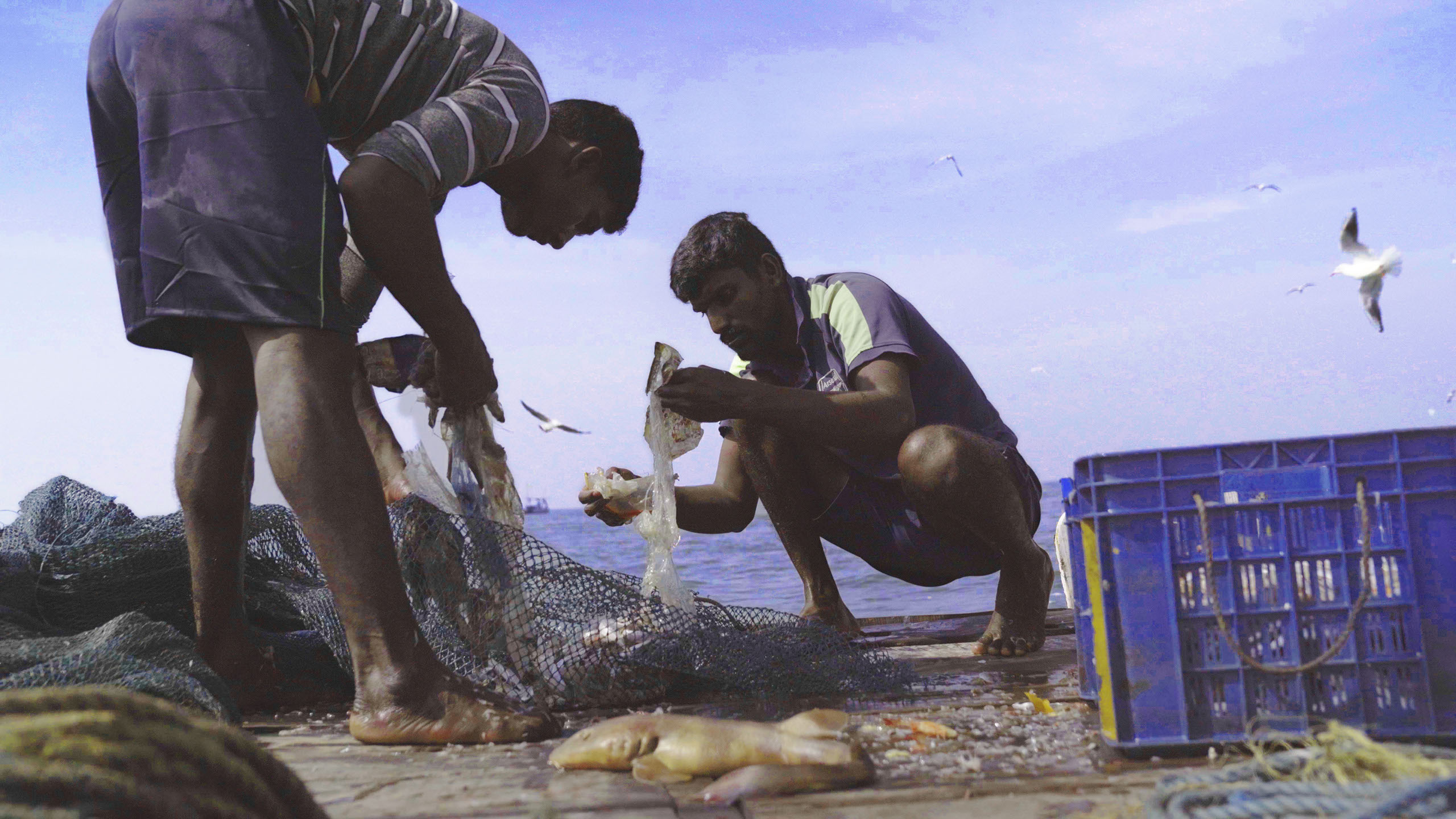At first glance, the two friends in Against the Tide couldn’t be more different. Both Koli fishermen, their similarities seem to stop at the generality of their shared profession. Rakesh and Ganesh look at the sea with contrasting perspectives, the former leaning towards tradition and conservation, the latter focused on the next way to make money.
Rakesh lives without a toilet in his home, inside a small village with his wife and newborn baby boy. His longtime friend lives closer to the city, keeps his boat in a large dock, and fishes using newer, illegal technology after returning from studying abroad in Scotland. Somehow these men have remained close friends, attending the most important moments of each other’s lives. In Sarvnik Kaur’s documentary, the fishermen don’t fracture, only bending a bit from the constraints of money, family, and opposing ideals.
Kaur follows both providers as they go about their daily lives. She sees them catch small amounts of fish, struggle to pay their workers, take out loans, and still have big smiles on their faces. Rakesh could, in particular, easily be seen as the more likable man, adhering to the fishing traditions his forefathers taught him, unwilling to cut corners or damage the sea. It’s unfeasible to think about Ganesh in the same light, as he weighs the option of using LED lights to catch large swaths of fish, a practice known for harming the community in this limited workspace while also burning extra fuel with his deep-sea trips.
Kaur juxtaposes these men while keeping them intertwined. As Rakesh’s baby grows increasingly sick, his supposedly richer friend learns he’s about to have a child as well. Both are short on cash, unable to pay for the necessities and making tough decisions to (literally) stay afloat. Still does the one following tradition––the poorer of these friends––seem much happier.
Using a cinema vérité approach, Kaur ingratiates herself into this community, into this friendship. Against the Tide feels and acts like a narrative feature. It doesn’t require much to get lost in this story, in the connected fates of Rakesh and Ganesh. That’s not to say the men feel made-up or fictional; the narrative beats follow a written structure. Each man encounters a rise and fall, a longshot of odds they must overcome, sometimes to no avail. As a documentary, the stories of these fishermen works wonders, engrossing and politically resonant in equal measure.
Ganesh’s travels and newfound view of this profession provides the central reason for political interest. The Western world has changed his views and capitalistic attitude on display for everyone around him to see. He throws lavish parties and expects to catch the most fish. Unlike his best friend, he does value comfort and even luxury, promising to travel more in the future. One can surmise he’s been influenced by a wave of selfish, like-minded, right-wing politicians, those that have been (outwardly) successful in business and risen to power. He wants to be seen in a similar light.
Against the Tide is a short examination of two people with shifting ideals and desires for their lives. Clocked at a little over 90 minutes, Kaur’s film looks at a relationship strained by tradition and the throwing away of it, a brotherhood that simply will not end regardless of contradiction. It’s moving in its minuteness, in the difficulty of daily living for two men trying to survive an intensive, low-income job. Still, it returns to the issue of friendship and how, as people age, they begin to grow apart.
Against the Tide premiered at the 2023 Sundance Film Festival.

